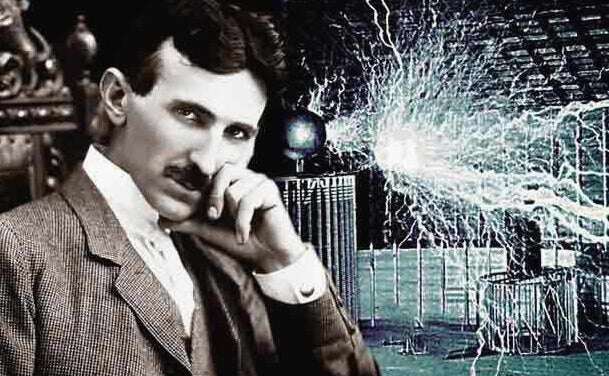Nikola Tesla is said to have been the genius who illuminated the world, and to imagine our life without his legacy it would be enough to simply turn off the light, however, his silhouette is always associated with the loneliness and incomprehension that often accompany the great minds: always complex, always fascinating.
One of Tesla’s best-known phrases is the one that journalists of the time immortalized and that somehow also served to underline his vehement and always cheerful spirit: “The gift is yours, but the future is. For me. “
- Maybe he was right.
- There is no shortage of those who claim that without it.
- Our world would have the remnants of an enigmatic setting.
- Such as the silent forest of Sleeping Beauty.
- A dark territory.
- Without radio.
- Without television.
- Without giant industries and without the eternal roar of our modern cities.
Tesla owes the induction coil that marked the beginning of the radio era. He was also the architect of the transmission system that brings electricity to our homes, remote control, wireless telegraphy, violent light rays, MAGNETIC resonance imaging. All without alluding to his dreamiest engineering work, but then bankrupt, forgotten and even destroyed, the “Wardenclyffe” project, which aimed to provide free wireless power to everyone.
For many, this serbian man suffered the punishment of oblivion for confronting the power of the industry of his time and trying to offer it to the most humble. In any case, we don’t talk so often about Tesla’s personality, about its psychology. and that most intimate and personal universe that existed behind genius.
We invite you to learn a little more about your figure below
There are several books dealing with Nikola Tesla’s deeper and more personal universe.
When an idea arises in his mind, he abandons it only when it is shaped or simply dismembered, we know that he slept little, that he ate less and that from a very young age he associated that creativity required rigid rules, difficult schedules and an approach where emotions were inevitably relegated. His science had a strong will to the point that he wanted to become assical, avoiding any emotional relationship; according to him, such relationships would cause him to lose objectivity in his creative work.
It was definitely something he later regretted, and in an interview he ended up complaining about his loneliness, he admitted that the creative task has a lot of passion, but at the same time his hungry mind was also his great enemy: he was always full. of multiple ideas and complex projects that attacked him like storms, such as lightning to which he had to obey by force.
Nikola Tesla arrived in New York in 1885, had only one notebook full of calculations, thousands of ideas in mind, some poems and four cents in his pocket, but he knew very well what he wanted to achieve. Just a year later, he had already sold the alternative chain engine patent to George Westinghouse and was immersed in what was called the “chain war,” linked to his Thomas Edison nemesis.
However, this spirit was inhabited by infinite ideas, complex worlds laden with electricity, and systems that connected invisibly into the distance, which were not generally shaped. Not at least as Tesla, I wanted to stumble upon two great rivals: a fierce system. and an interested policy that didn’t align with “ridiculous” ideas. Tesla. De, he also suffered from an obsessive-compulsive disorder that took away his morale and health at the end of his life.
The last years of Nikola Tesla’s life were particularly complex, his obsessive-compulsive disorder came to greatly condition his routines. He lived in hotels, where he always asked for 18 towels, when he ate or dined, which was rare, requiring 18 towels at the table.
The room where he was staying was still 207 as this number was divisible by 3. His strange obsession with number 3 and the idea of offering free energy to the wireless world took away his health and personal balance, his level of demand was so high that Neurosis reached immeasurable limits, sounds hurt him, he became hypersensitive, he also lacked money because Tesla had no commercial ambitions.
He sold all his patents and died in extreme poverty, leaving a myriad of works and documents with which others would enrich themselves. Today, Tesla’s name has regained its brightness and light that not only wanted to move us forward, but also had a rare altruism. of someone who never sought to get rich, only to put science at the service of humanity.

